Abstract
The field of health and human rights has grown quickly, but its boundaries have yet to be traced. Fifty-one years after the Universal Declaration of Human Rights, consensus regarding the most promising directions for the future is lacking; however, outcome-oriented assessments lead us to question approaches that rely solely on recourse to formal legal and civil rights. Similarly unpromising are approaches that rely overmuch on appeals to governments: careful study reveals that state power has been responsible for most human rights violations and that most violations are embedded in "structural violence"--social and economic inequities that determine who will be at risk for assaults and who will be shielded. This article advances an agenda for research and action grounded in the struggle for social and economic rights, an agenda suited to public health and medicine, whose central contributions to future progress in human rights will be linked to the equitable distribution of the fruits of scientific advancement. Such an approach is in keeping with the Universal Declaration but runs counter to several of the reigning ideologies of public health, including those favoring efficacy over equity.
Full text
PDF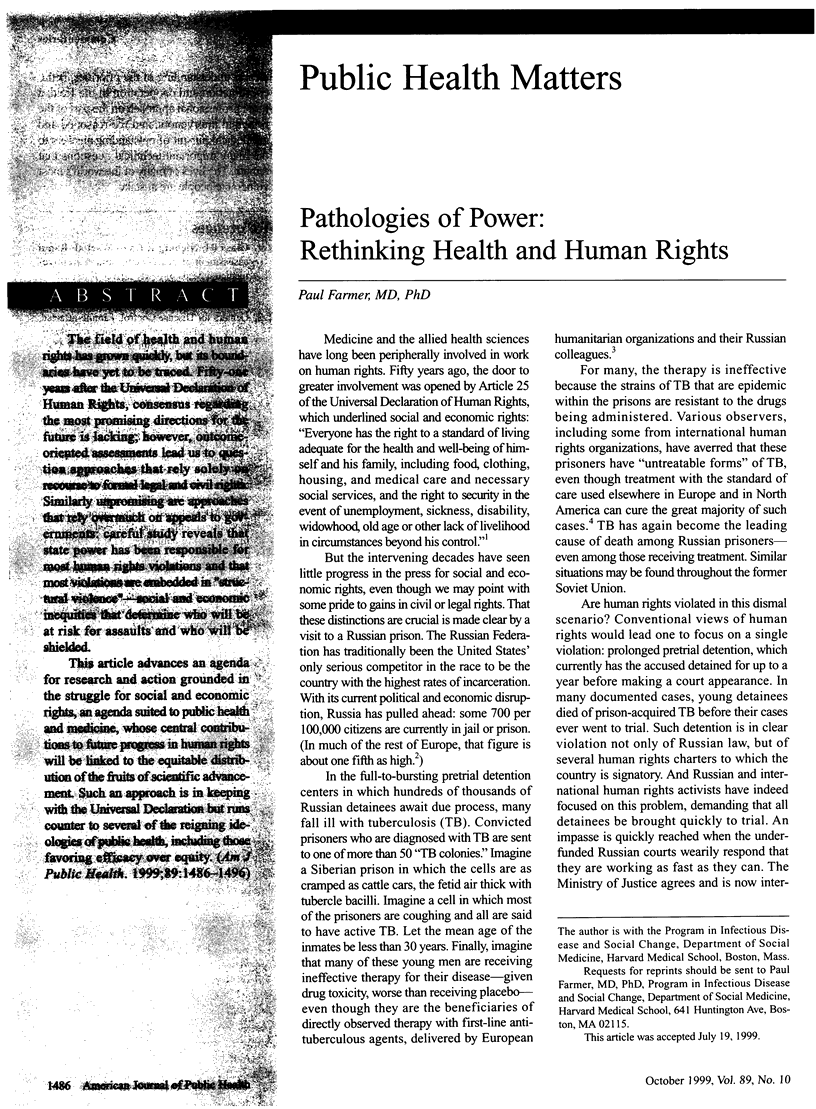
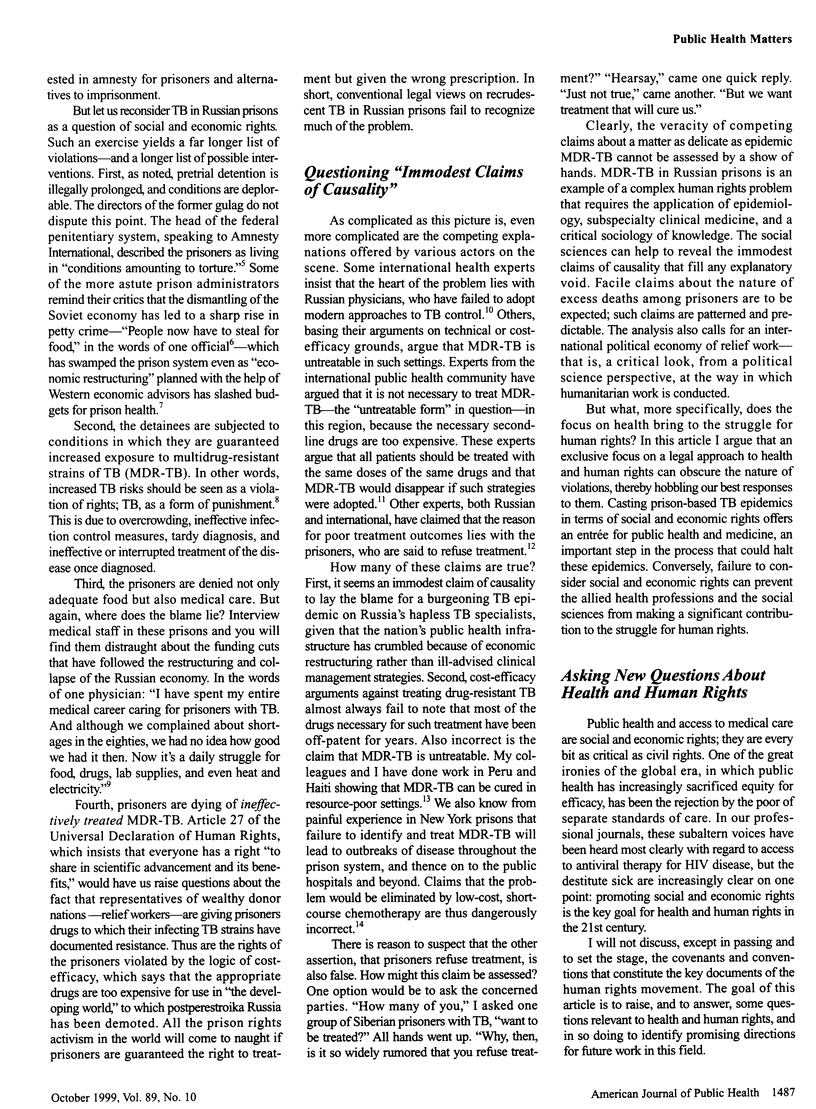
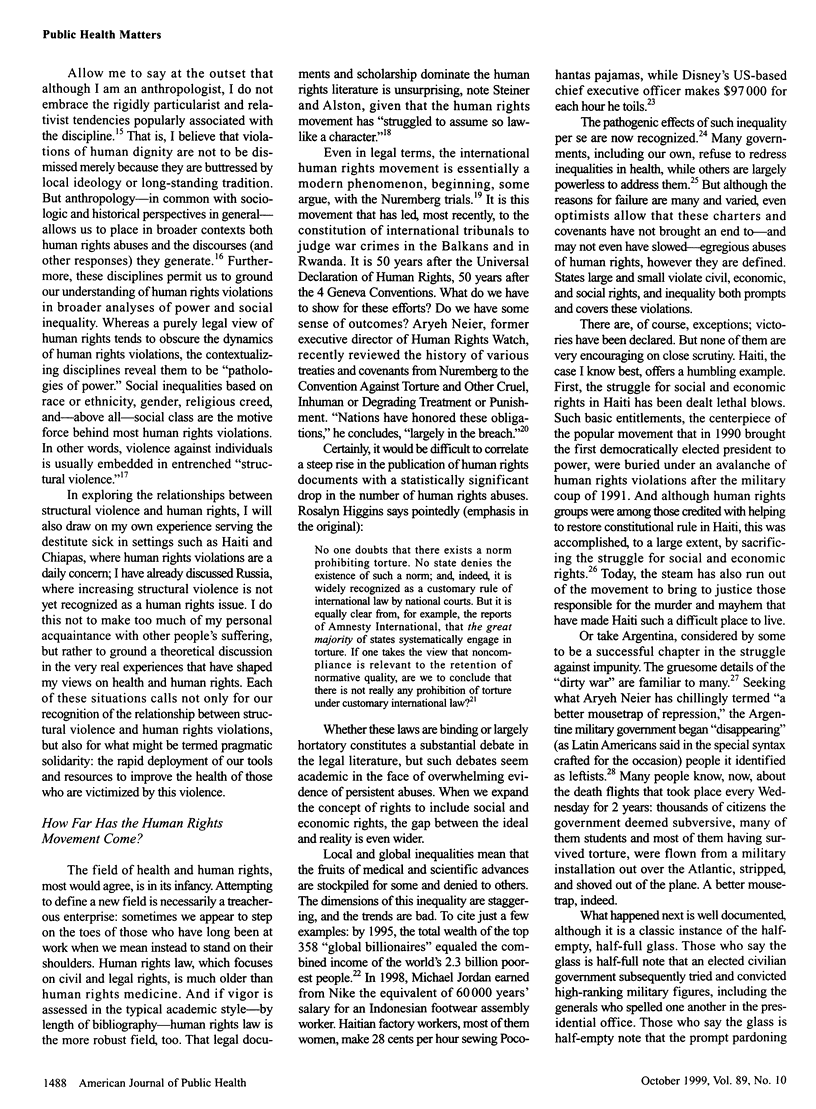
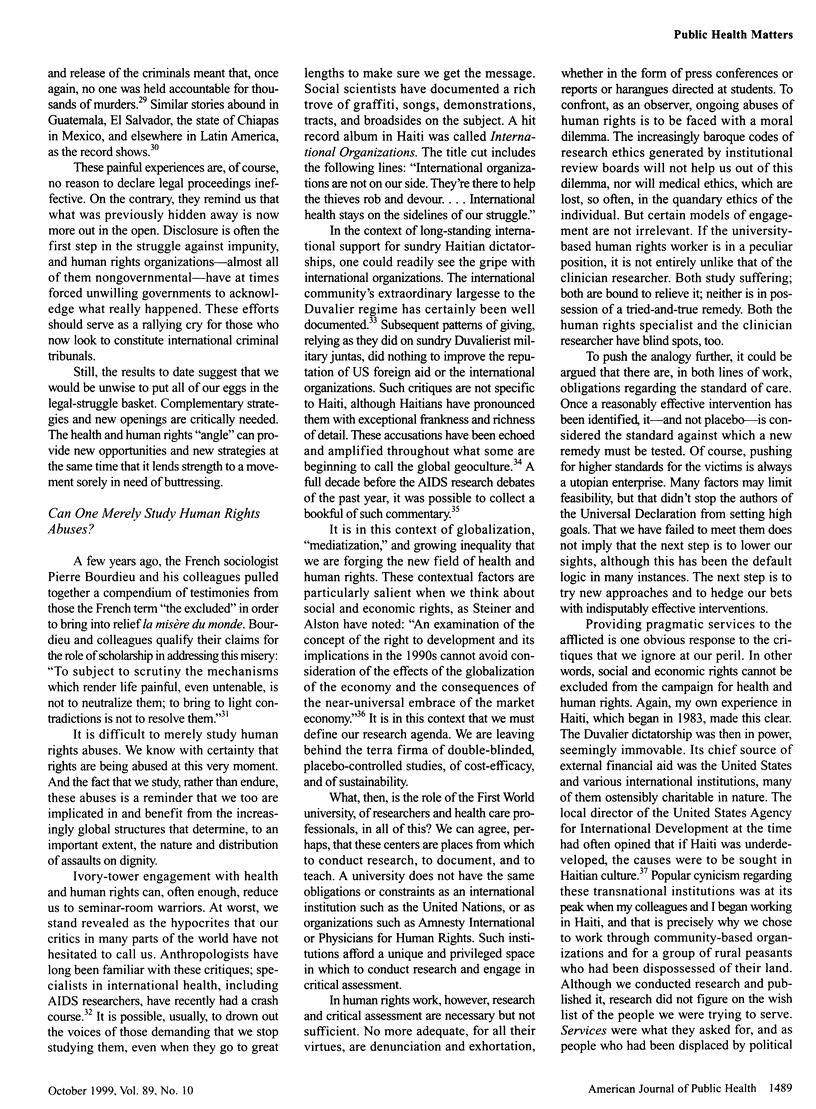
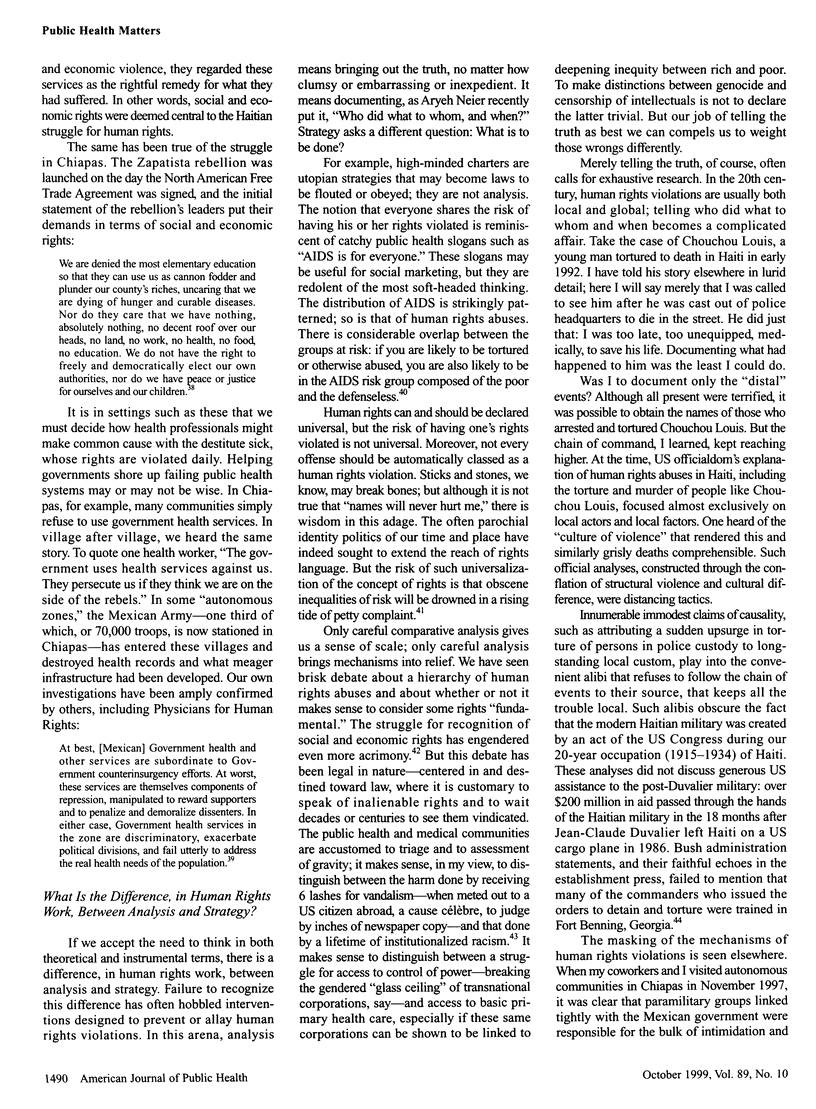
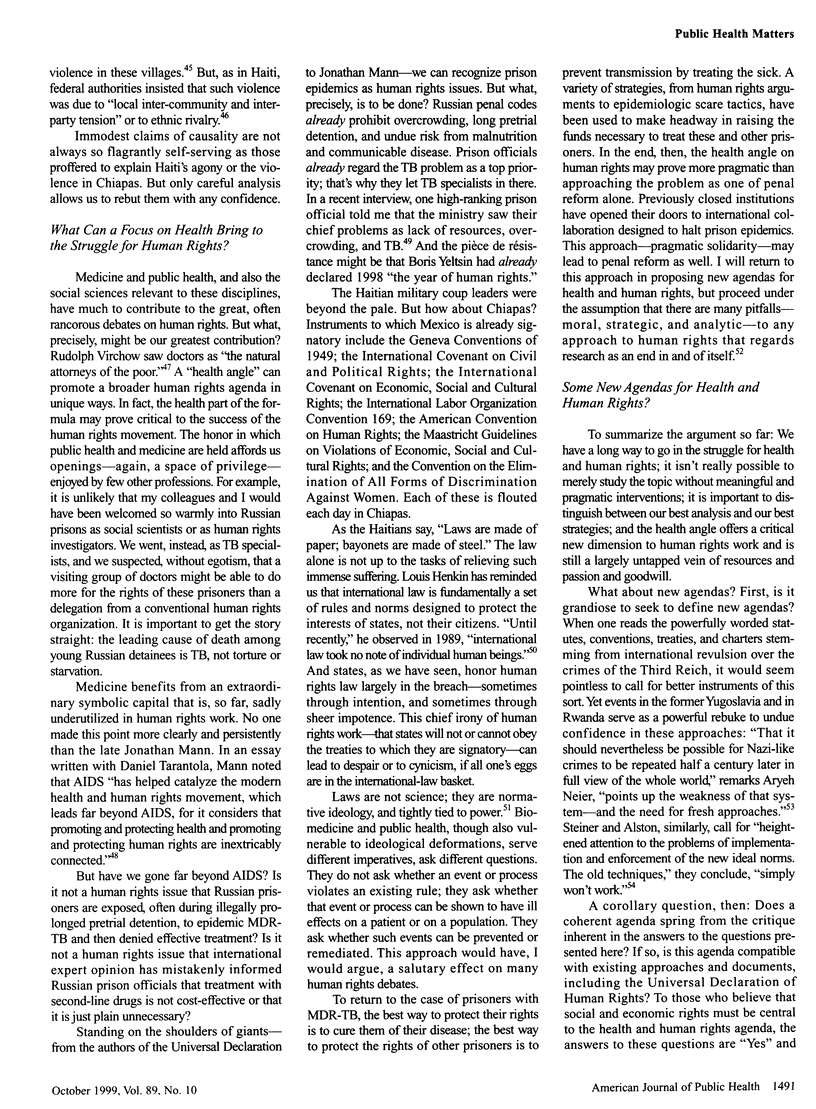
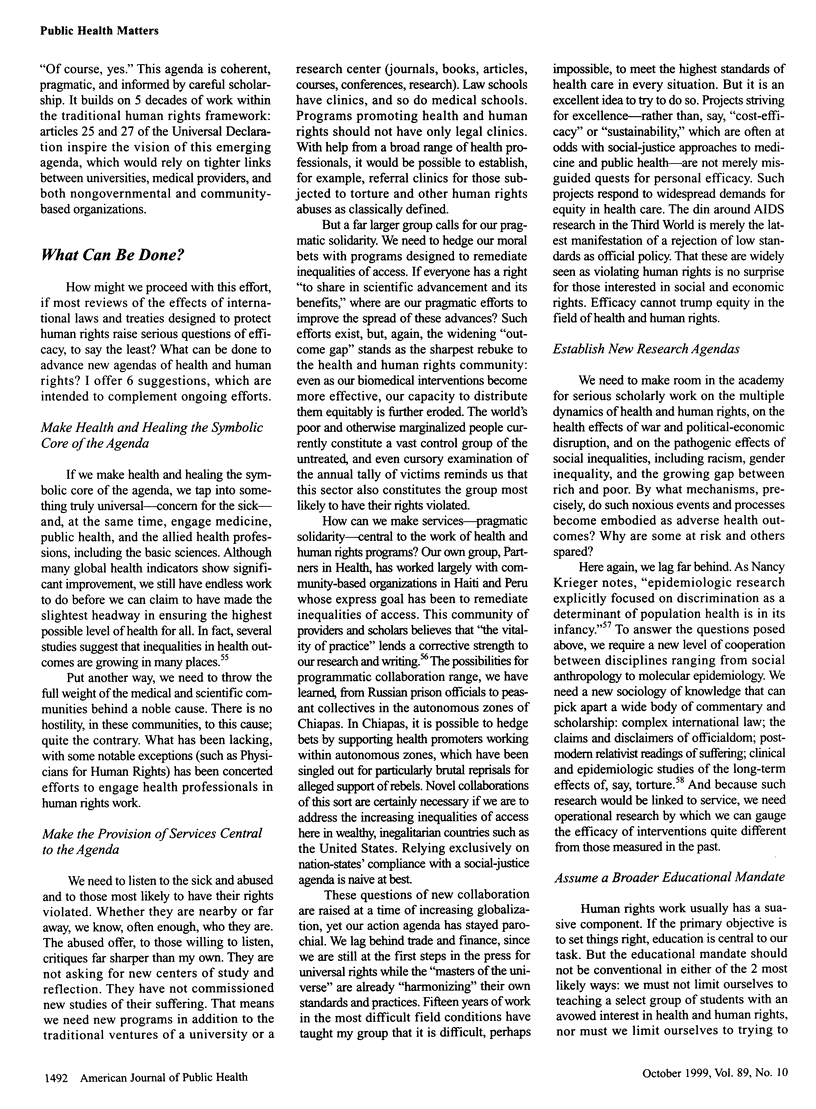
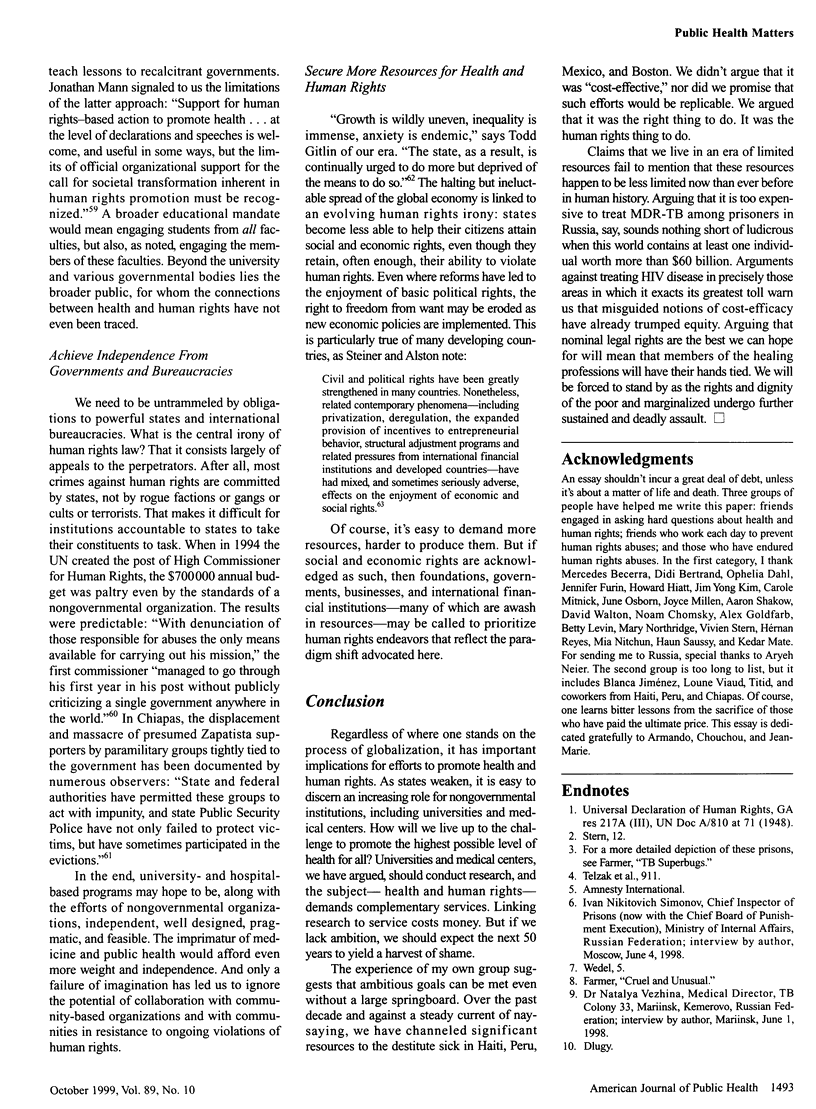
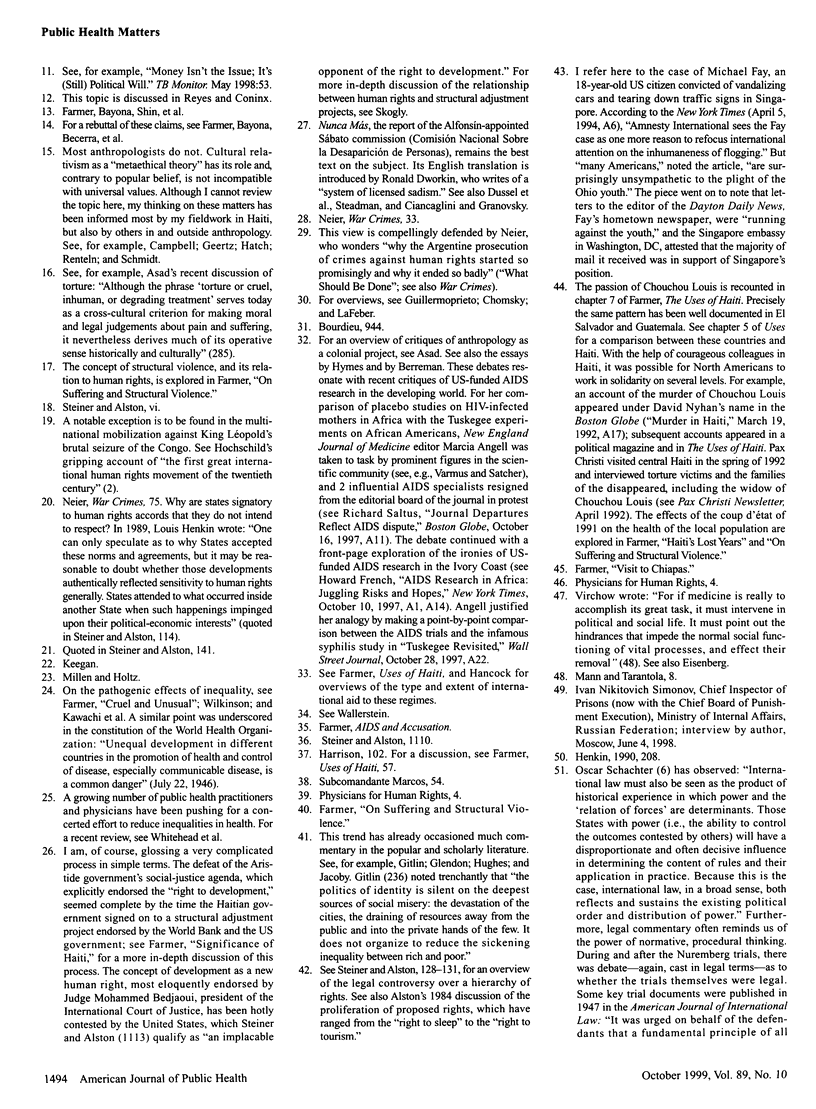
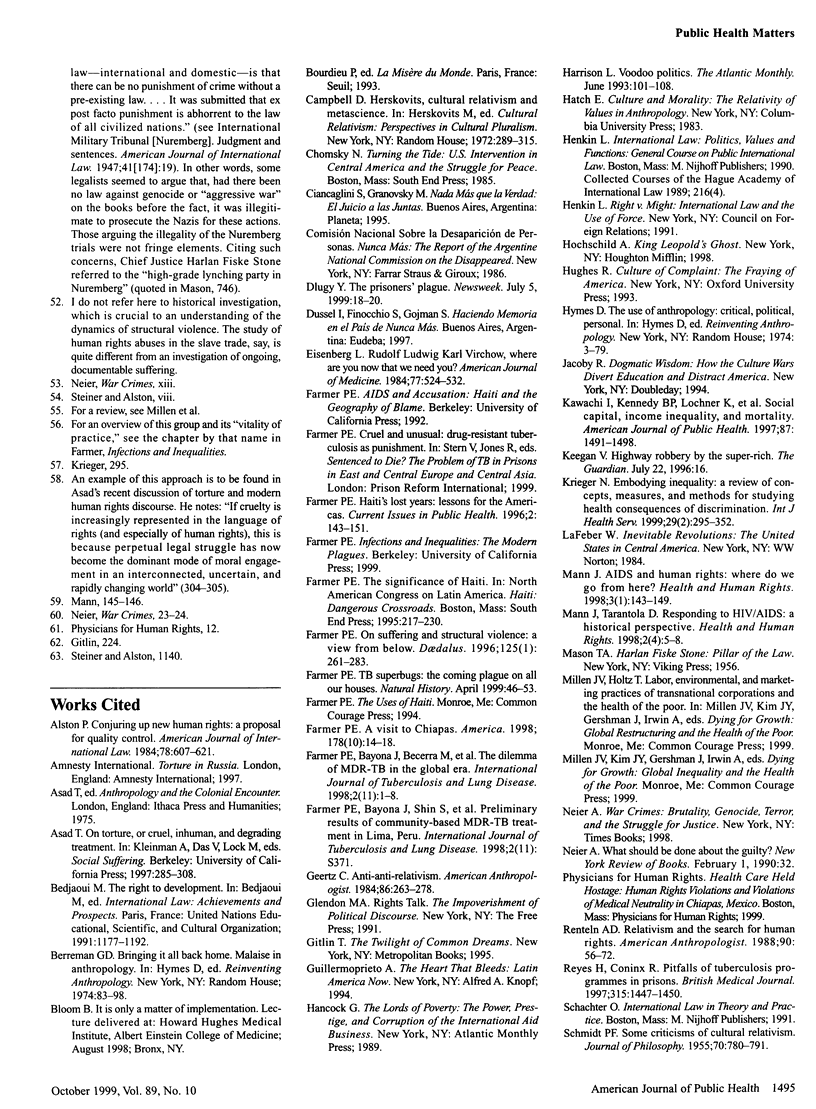
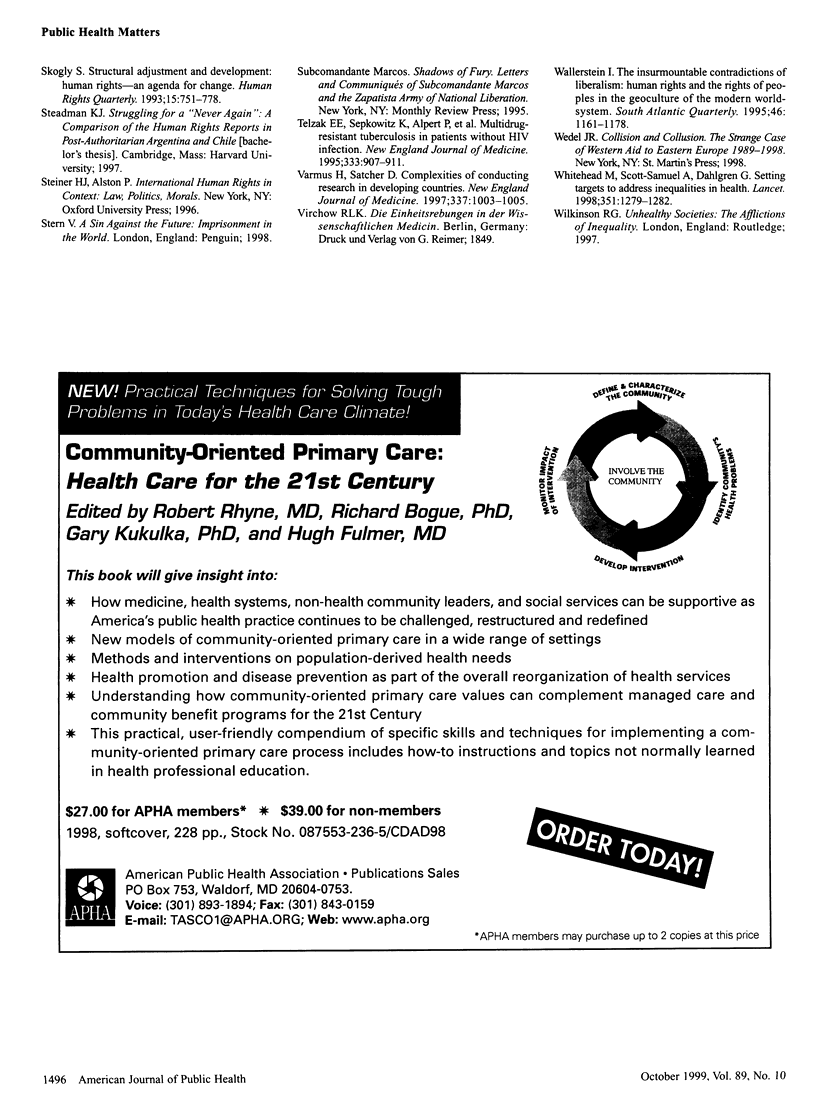
Selected References
These references are in PubMed. This may not be the complete list of references from this article.
- Eisenberg L. Rudolf Ludwig Karl Virchow, where are you now that we need you? Am J Med. 1984 Sep;77(3):524–532. doi: 10.1016/0002-9343(84)90114-1. [DOI] [PubMed] [Google Scholar]
- Kawachi I., Kennedy B. P., Lochner K., Prothrow-Stith D. Social capital, income inequality, and mortality. Am J Public Health. 1997 Sep;87(9):1491–1498. doi: 10.2105/ajph.87.9.1491. [DOI] [PMC free article] [PubMed] [Google Scholar]
- Krieger N. Embodying inequality: a review of concepts, measures, and methods for studying health consequences of discrimination. Int J Health Serv. 1999;29(2):295–352. doi: 10.2190/M11W-VWXE-KQM9-G97Q. [DOI] [PubMed] [Google Scholar]
- Mann Jonathan M. AIDS and human rights: where do we go from here? Health Hum Rights. 1998;3(1):143–149. [PubMed] [Google Scholar]
- Stempsey William E. The battle for medical marijuana in the war on drugs. America (NY) 1998 Apr 11;178(12):14–16. [PubMed] [Google Scholar]
- Telzak E. E., Sepkowitz K., Alpert P., Mannheimer S., Medard F., el-Sadr W., Blum S., Gagliardi A., Salomon N., Turett G. Multidrug-resistant tuberculosis in patients without HIV infection. N Engl J Med. 1995 Oct 5;333(14):907–911. doi: 10.1056/NEJM199510053331404. [DOI] [PubMed] [Google Scholar]
- Varmus H., Satcher D. Ethical complexities of conducting research in developing countries. N Engl J Med. 1997 Oct 2;337(14):1003–1005. doi: 10.1056/NEJM199710023371411. [DOI] [PubMed] [Google Scholar]
- Whitehead M., Scott-Samuel A., Dahlgren G. Setting targets to address inequalities in health. Lancet. 1998 Apr 25;351(9111):1279–1282. doi: 10.1016/S0140-6736(98)03302-9. [DOI] [PubMed] [Google Scholar]


